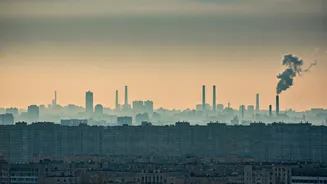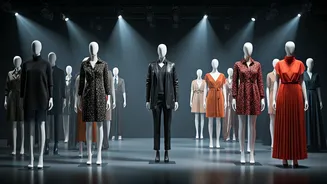Air Quality Concerns
The air quality in Delhi-NCR is getting worse, especially as Diwali gets closer. The situation has led to the enforcement of the second stage of the Graded
Response Action Plan (GRAP). The measures in GRAP II include specific restrictions meant to reduce pollution in the area. These steps are critical because the air quality is becoming unsafe, and the goal is to protect people's health during this time. The authorities are doing what they can to manage the worsening air quality and help people stay safe.
GRAP II Implementation
GRAP II, which has been put into effect, calls for a number of restrictions. One major rule is the strict ban on the use of coal in various sectors, including industries, hotels, and restaurants. However, this ban makes some exceptions for power plants. The focus is on decreasing emissions from these sources. These actions are part of a broader plan to improve air quality during the time when pollution levels are expected to go up. By actively controlling various emission sources, officials are attempting to decrease the concentration of pollutants in the air.
Restrictions Explained
In addition to banning coal use, GRAP II has other measures in place. This includes stopping the use of diesel generator sets, except for essential services such as hospitals and emergency facilities. Construction and demolition projects have also faced restrictions, with those needing to halt operations to cut down on dust. These steps demonstrate an attempt to control the sources of both particulate matter and other dangerous pollutants. By addressing these different factors, authorities are attempting to protect public health and enhance air quality throughout the Delhi-NCR area as the festive season progresses.
Public Health Focus
The main focus of implementing GRAP II is to safeguard public health. Air pollution can severely impact health, particularly for those with respiratory issues or other health problems. The measures in place are designed to lessen exposure to harmful air pollutants. The authorities wish to inform the public of the precautions they can take during this period. Monitoring air quality levels and issuing advisories help people to remain well-informed. The actions are a part of a wider effort to minimize air pollution and protect the population during a crucial time.
Community Actions Advised
Besides the steps taken by the authorities, people can also play a role in lessening pollution. Staying informed about air quality levels through air quality indexes (AQI) is very helpful. Minimizing the time spent outdoors, especially when pollution levels are high, is also advised, particularly for the elderly and those with health concerns. People are encouraged to take actions such as carpooling or using public transportation to lessen emissions from vehicles. By actively working together, the community can help improve the air quality and reduce the impacts of pollution.














